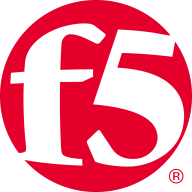

NGINX App Protect and Akamai API Security compete in the web application security space, each offering distinct capabilities. NGINX App Protect is favored for its cost-effectiveness and seamless integration, while Akamai stands out with its advanced analytics, justifying its higher cost for those needing comprehensive security.
Features: NGINX App Protect focuses on integration with existing NGINX environments, high performance, and a robust ruleset. Akamai API Security offers intelligent threat detection, dynamic policy enforcement, and comprehensive analytics. The primary distinction is Akamai’s advanced analytics compared to NGINX’s performance.
Ease of Deployment and Customer Service: NGINX App Protect is noted for quick deployment in NGINX environments with responsive customer support. Akamai's deployment is more complex because of its comprehensive features, supported by detailed guidance from their support teams. Akamai’s support model accommodates larger implementations.
Pricing and ROI: NGINX App Protect offers competitive pricing and a favorable return on investment due to lower setup costs and efficient resource use. Akamai, despite higher initial costs, provides substantial ROI by delivering robust, feature-rich solutions for complex security needs. Akamai’s expanded capabilities justify the higher cost for extensive security measures.


Akamai API Security offers robust protection against DDoS attacks and is highly valued for its efficient API throttling capabilities, allowing multiple users to manage traffic effectively. This ensures both optimal performance and enhanced security by controlling API access and utilization.
\n\nAkamai API Security excels in safeguarding APIs with its industry-leading throttling features, allowing multiple users to prevent overload and abuse. By managing traffic efficiently, users can maintain service availability even under high demand or potential attacks. While the platform successfully combines machine learning with API throttling in its developing URL protection feature, there\'s room for improvement, especially in preventing false positives from reputable sources and precisely detecting threats from malicious hosting providers.
\n\n**What are the key features of Akamai API Security?**\n
- **API Throttling**: Efficiently manage and control the flow of API requests, ensuring consistent performance and avoiding overloads.\n
- **DDoS Protection**: Robust defenses against distributed denial-of-service attacks, safeguarding the availability and reliability of services.\n
- **Machine Learning Integration**: Enhanced threat detection by distinguishing between legitimate and malicious API calls, refining security measures.\n
- **URL Protection**: Developing feature that combines machine learning and API throttling for advanced security, with a focus on refining accuracy.
**What benefits should be looked for in reviews when evaluating Akamai API Security?**\n
- **Improved Performance**: Reduced risk of API overloads and maintained service availability during high traffic periods.\n
- **Enhanced Security**: Strong defenses against DDoS attacks and abuse, ensuring data integrity and safe access.\n
- **Efficient Traffic Management**: Smarter throttling mechanisms equipped to handle large volumes of requests, prioritizing legitimate usage.\n
- **Advanced Threat Detection**: Utilization of machine learning to better identify and respond to security threats.
Implementation of Akamai API Security across industries varies. For example, e-commerce platforms benefit from its robust DDoS protection and API throttling, ensuring customer transactions remain secure and services available during peak shopping times. Financial service companies use its machine learning capabilities to detect and block suspicious activities, preserving the integrity of client transactions while managing large volumes of API calls. Media streaming services leverage its ability to prevent overload, providing uninterrupted streaming experiences even during high demand events.
NGINX App Protect application security solution combines the efficacy of advanced F5 web application firewall (WAF) technology with the agility and performance of NGINX Plus. The solution runs natively on NGINX Plus and addresses some of the most difficult challenges facing modern DevOps environments:
NGINX App Protect offers:
We monitor all API Security reviews to prevent fraudulent reviews and keep review quality high. We do not post reviews by company employees or direct competitors. We validate each review for authenticity via cross-reference with LinkedIn, and personal follow-up with the reviewer when necessary.